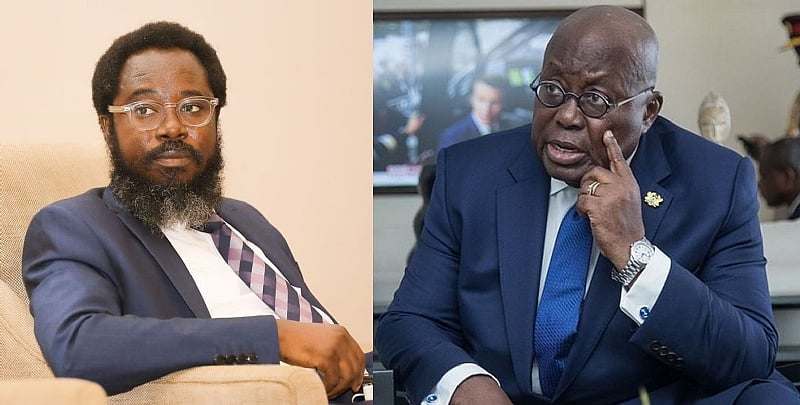The political landscape of Ghana has undergone a significant shift with the unexpected defeat of the incumbent New Patriotic Party (NPP) and its leader, Nana Addo Dankwa Akufo-Addo, in the 2024 elections. This outcome has sparked widespread disappointment and introspection, particularly given the high hopes and expectations that accompanied Akufo-Addo’s ascension to the presidency in 2016. Political marketing strategist, Professor Kobby Mensah, articulates this sentiment, characterizing Akufo-Addo’s tenure as a letdown for many Ghanaians, including a substantial segment within the NPP itself. The disillusionment stems from the perceived disconnect between the anticipated transformative leadership and the realities of his governance, which many now view as falling short of the promised mark.
Akufo-Addo’s electoral victory in 2016 was fueled by a wave of optimism and a widespread belief in his capacity to usher in an era of progress and prosperity. He was seen by many as the long-awaited leader who would deliver the “Ghana they want,” building upon the legacy of his predecessor, John Kufuor. The comparison between the two leaders further underscores the depth of disappointment felt by many. Kufuor’s tenure is now retrospectively viewed as a period of stability and positive growth, setting a benchmark against which Akufo-Addo’s performance is judged and found wanting. The narrative of Kufuor as the precursor and Akufo-Addo as the awaited savior adds a layer of symbolic significance to the perceived failure to meet expectations.
The disappointment extends beyond the general public and permeates the ranks of the NPP itself. Prof. Mensah reveals that private conversations within the party often reveal a sense of disillusionment with Akufo-Addo’s leadership. Party members who once held him in high esteem, viewing him as a stern, well-read, and globally respected figure, now express disappointment at his performance. The expectation that his leadership would be transformative has given way to a perception of his governance as “shambolic.” This internal critique within the NPP highlights the extent to which Akufo-Addo’s leadership has fallen short of the aspirations of even his own supporters.
The 2024 election results, with John Dramani Mahama’s victory on a platform of “resetting the country,” further amplify the narrative of Akufo-Addo’s perceived failings. Mahama’s campaign resonated with a public seemingly eager for a change in direction, suggesting a widespread dissatisfaction with the status quo under Akufo-Addo’s leadership. The “reset” rhetoric captured the public sentiment and provided a rallying point for those who felt that the country had veered off course. This electoral outcome serves as a stark indictment of Akufo-Addo’s performance and reinforces the perception of his presidency as a missed opportunity.
The NPP now finds itself grappling with the aftermath of its electoral defeat and the accompanying criticism of its recent leadership. The party is forced into a period of introspection, examining the factors that contributed to its loss of public trust and support. The disappointment in Akufo-Addo’s leadership is a central theme in this process of self-examination. The party must confront the disconnect between the expectations surrounding Akufo-Addo’s presidency and the perceived realities of his governance. This introspection is crucial for the NPP to regain its footing and chart a course for the future.
The future of the NPP hinges on its ability to learn from the past and adapt to the changing political landscape. The party must address the internal dissent and reconcile the differing perspectives within its ranks. The disappointment surrounding Akufo-Addo’s leadership serves as a critical lesson, highlighting the importance of aligning expectations with tangible results. The NPP’s path forward requires a renewed commitment to the principles that once resonated with the electorate and a demonstrable ability to deliver on its promises. Only through genuine self-reflection and a willingness to adapt can the NPP hope to regain the public’s trust and reclaim its position as a leading force in Ghanaian politics.


